17 Movies That Were Way Ahead of Their Time
Some films are so groundbreaking that they leave a lasting impact for years to come. These 17 movies were ahead of their time, offering ideas, technology, and storytelling techniques that were revolutionary when they first came out. Even today, these films feel fresh and relevant, showing just how visionary they truly were. Discover the movies that were lightyears ahead of the curve.
1. “Metropolis” (1927)

Fritz Lang’s “Metropolis” is a silent film set in a dystopian future where society is starkly divided between the working class and the elite. Its groundbreaking special effects, innovative set designs, and themes of class struggle and automation were incredibly forward-thinking for its time, influencing countless science fiction films that followed.
2. “2001: A Space Odyssey” (1968)

Stanley Kubrick’s “2001: A Space Odyssey” redefined science fiction with its philosophical depth, realistic depiction of space travel, and pioneering special effects. The film’s portrayal of artificial intelligence, particularly the HAL 9000, and its exploration of human evolution remain relevant and influential decades after its release.
3. “Blade Runner” (1982)

Ridley Scott’s “Blade Runner” introduced audiences to a visually stunning, dystopian future where artificial humans, or replicants, challenge the very definition of humanity. Its themes of identity, memory, and corporate control, along with its neo-noir aesthetic, have cemented its status as a seminal work in science fiction.
4. “The Matrix” (1999)

“The Matrix,” directed by the Wachowskis, revolutionized action and science fiction films with its innovative use of “bullet time” special effects and its cyberpunk narrative. The film’s exploration of simulated reality, artificial intelligence, and human consciousness continues to resonate in an increasingly digital world.
Follow us for more of these articles.
5. “A Clockwork Orange” (1971)

Stanley Kubrick’s adaptation of Anthony Burgess’s novel “A Clockwork Orange” was ahead of its time in its portrayal of ultra-violence and psychological conditioning. Its disturbing yet thought-provoking narrative, coupled with its bold visual style, pushed the boundaries of what could be shown on screen.
6. “Network” (1976)
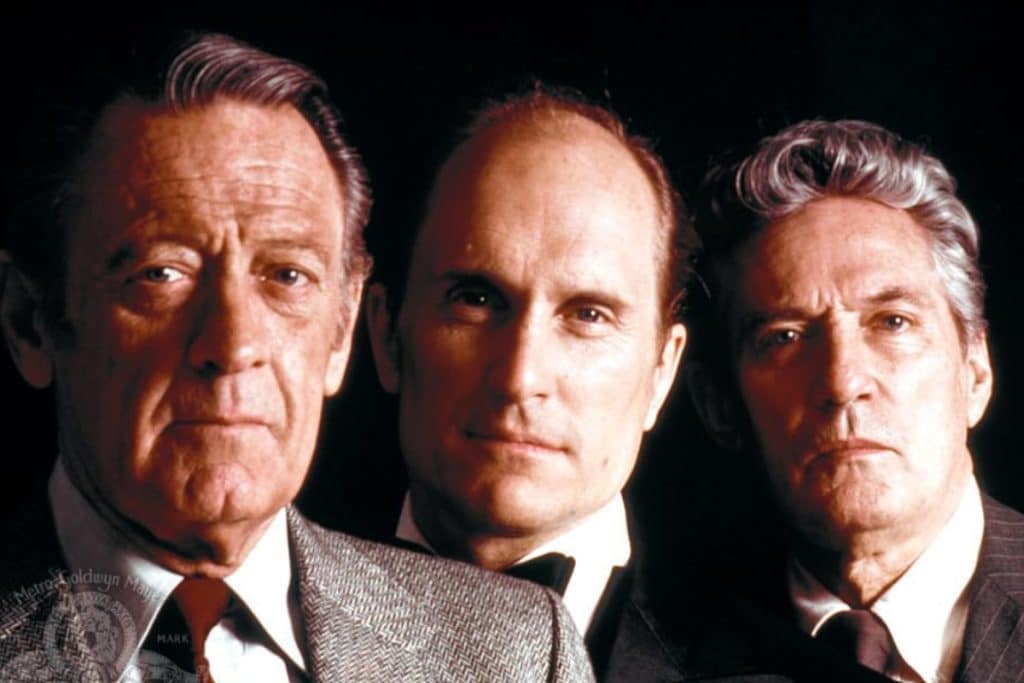
Sidney Lumet’s “Network” is a scathing satire of the television industry that foresaw the rise of sensationalist news and reality TV. Its depiction of media manipulation and the pursuit of ratings over journalistic integrity feels eerily prescient in today’s media landscape.
Follow us for more of these articles.
7. “Soylent Green” (1973)
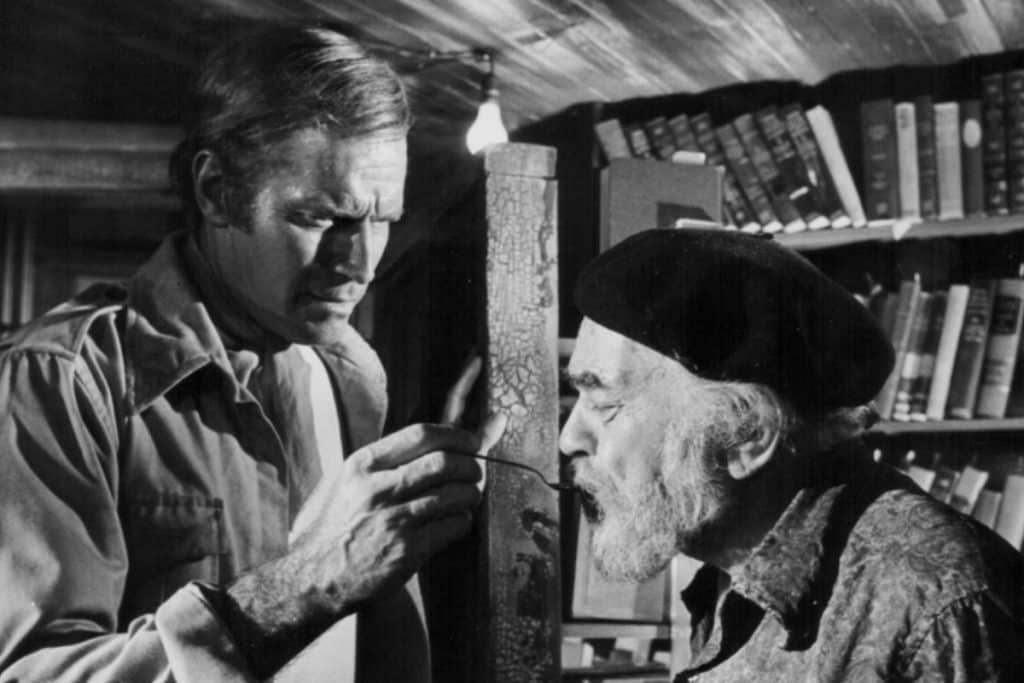
“Soylent Green,” directed by Richard Fleischer, is set in an overpopulated, dystopian future where resources are scarce. The film’s environmental and social commentary, particularly its shocking revelation about the true nature of the food supply, highlighted concerns that are increasingly relevant today.
8. “The Truman Show” (1998)

Peter Weir’s “The Truman Show” stars Jim Carrey as a man whose entire life is a reality TV show. The film’s exploration of privacy, surveillance, and the nature of reality television anticipated the rise of social media and the pervasive nature of reality TV shows.
Follow us for more of these articles.
9. “Her” (2013)

Spike Jonze’s “Her” delves into the complexities of human relationships with artificial intelligence. Joaquin Phoenix plays a man who falls in love with his operating system, voiced by Scarlett Johansson. The film’s exploration of love, loneliness, and technology’s role in our lives feels increasingly relevant.
10. “Brazil” (1985)
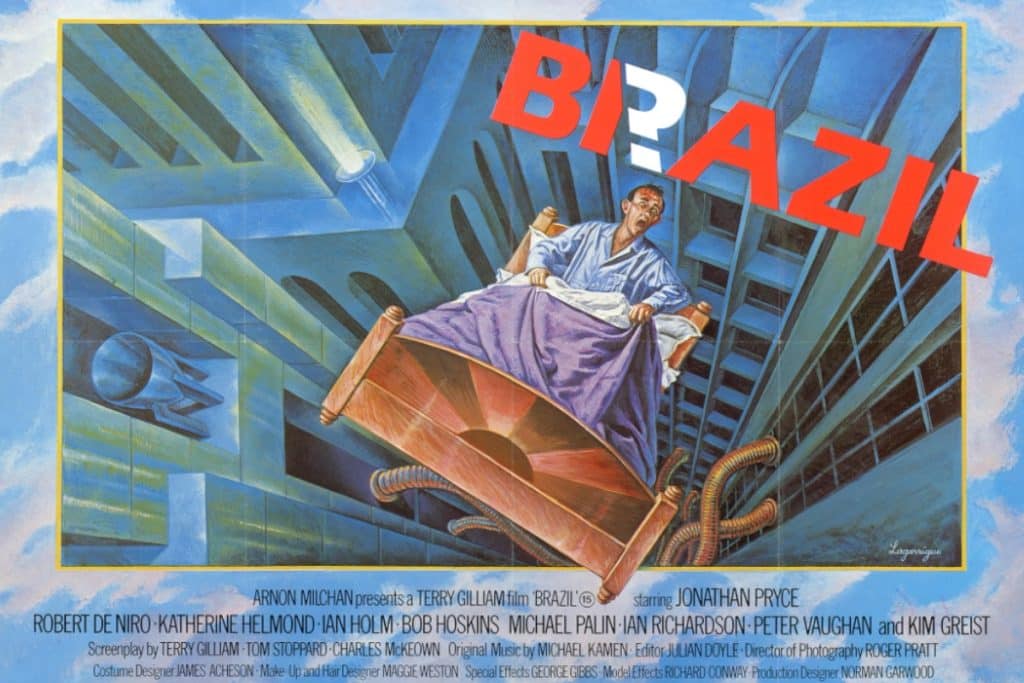
Terry Gilliam’s “Brazil” is a darkly comedic vision of a bureaucratic, dystopian future. Its satirical take on government overreach, surveillance, and the dehumanizing effects of technology remains strikingly relevant, and its imaginative visual style has influenced many filmmakers.
Follow us for more of these articles.
11. “Minority Report” (2002)
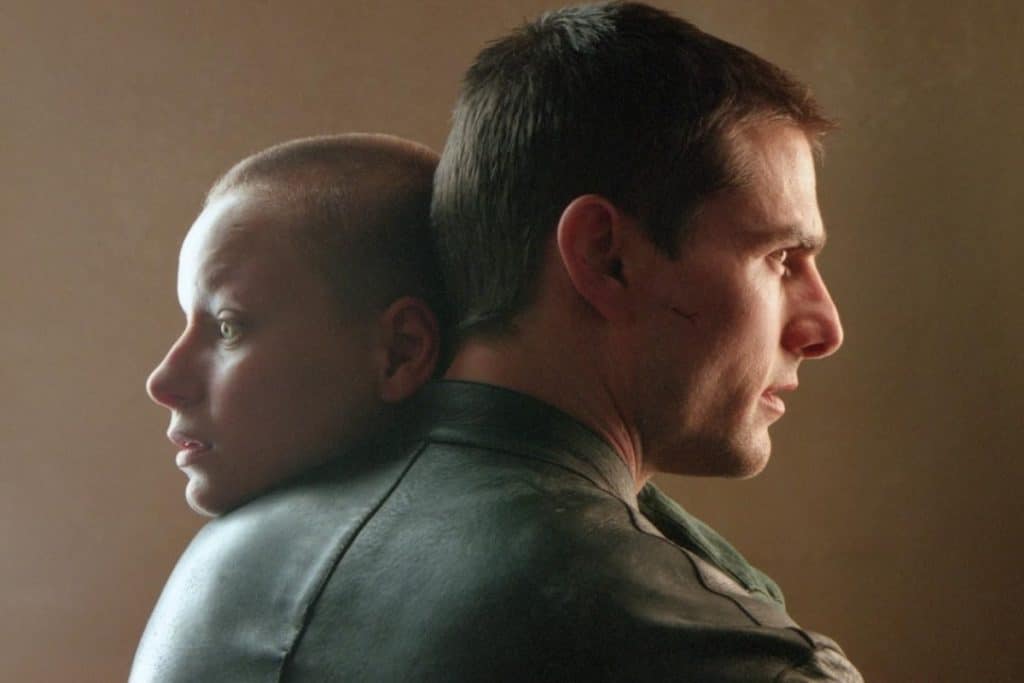
Steven Spielberg’s “Minority Report,” based on a story by Philip K. Dick, presents a future where crime can be predicted and prevented before it happens. Its depiction of surveillance, predictive policing, and privacy issues prefigures current debates about big data and AI in law enforcement.
12. “Children of Men” (2006)
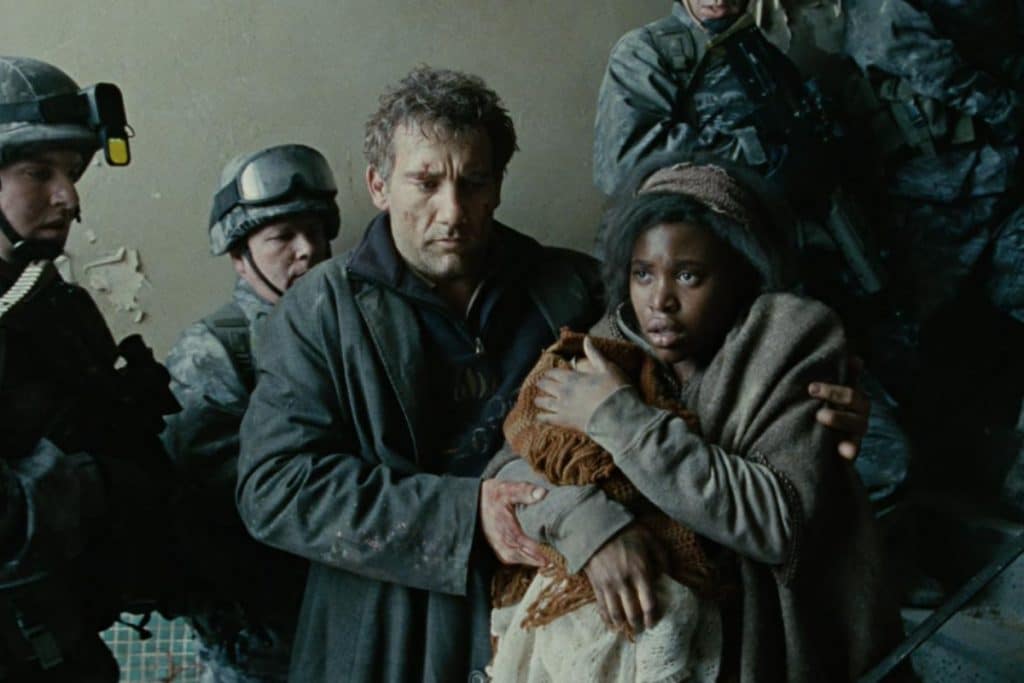
Alfonso Cuarón’s “Children of Men” envisions a bleak future where humanity faces extinction due to global infertility. Its themes of societal collapse, immigration, and hope in the face of despair resonate deeply with contemporary global issues, and its innovative cinematography is highly praised.
Follow us for more of these articles.
13. “Gattaca” (1997)

Andrew Niccol’s “Gattaca” explores a future where genetic engineering determines one’s social status. The film’s examination of eugenics, identity, and discrimination was ahead of its time, anticipating ethical debates surrounding genetic editing technologies like CRISPR.
14. “They Live” (1988)
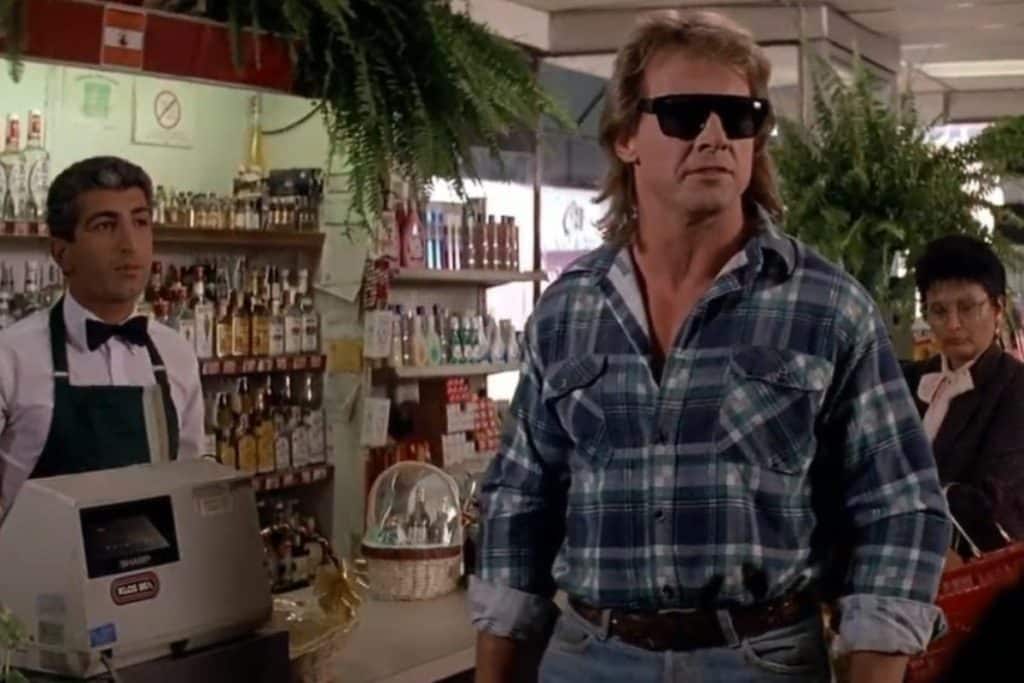
John Carpenter’s “They Live” is a satirical sci-fi film that critiques consumerism and media manipulation. Its concept of subliminal messaging and control by an elite class resonates with contemporary discussions about media influence and corporate power.
Follow us for more of these articles.
15. “THX 1138” (1971)
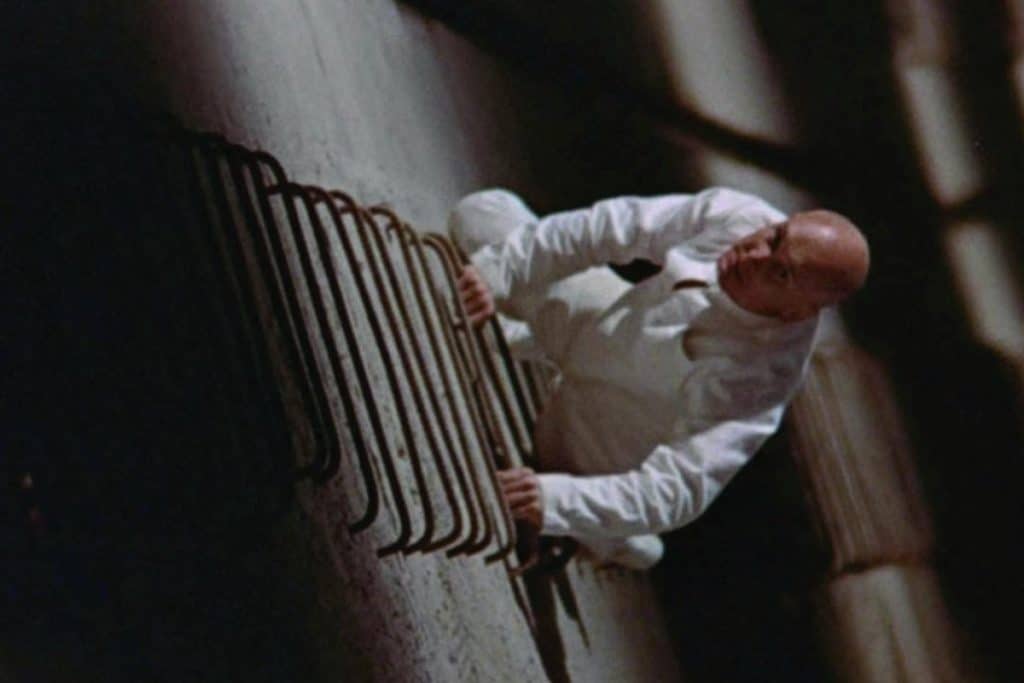
George Lucas’s “THX 1138” depicts a dystopian future where individuality is suppressed by a totalitarian state. The film’s stark visual style and themes of control, conformity, and rebellion were innovative, reflecting concerns that remain relevant today.
16. “Eternal Sunshine of the Spotless Mind” (2004)

Michel Gondry’s “Eternal Sunshine of the Spotless Mind” explores the implications of memory erasure technology on relationships and identity. Its nonlinear narrative and poignant exploration of love and loss were innovative, influencing subsequent films dealing with similar themes.
Follow us for more of these articles.
17. “Videodrome” (1983)
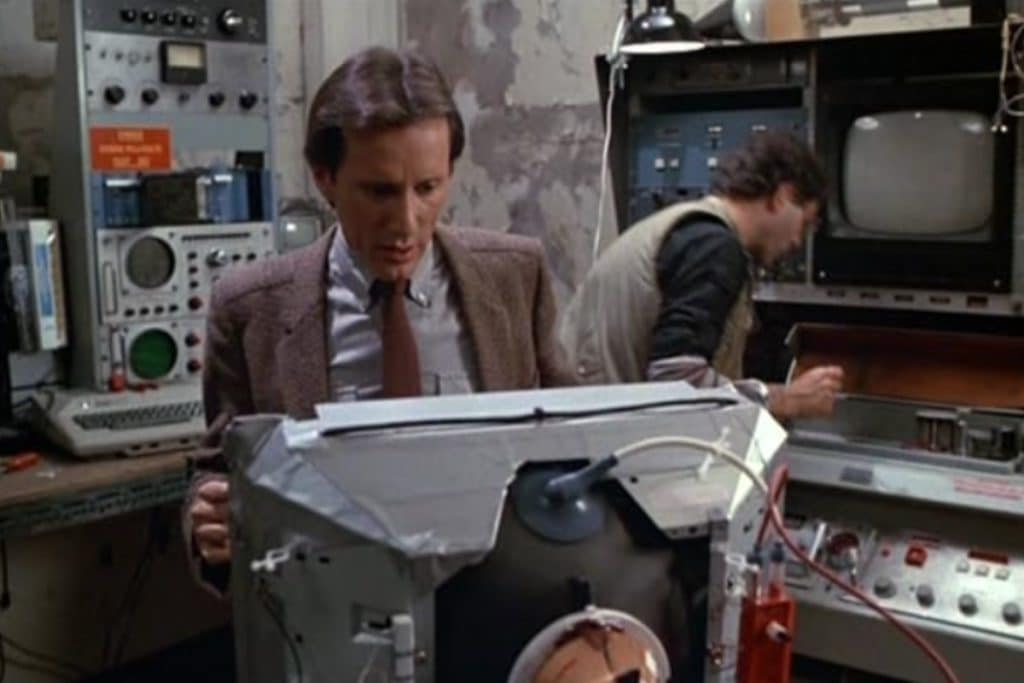
David Cronenberg’s “Videodrome” delves into the effects of media on the human psyche, presenting a reality where television signals can physically alter perception. Its exploration of media consumption, technology addiction, and body horror was groundbreaking and remains relevant in today’s digital age.
19 Famous Actresses Who Changed Hollywood Forever

Hollywood has been shaped by many talented actresses, but a few have changed the industry forever. These 19 women redefined what it means to be a leading lady, breaking barriers and setting new standards. From transforming roles for women to influencing how movies are made, these actresses left a permanent mark on the film world. Learn how they changed Hollywood in ways that still matter today.
19 Famous Actresses Who Changed Hollywood Forever
14 Classic Movies That Still Amaze Audiences

Some movies stand the test of time, continuing to impress audiences long after they were first released. These films are considered classics for a reason—they’re full of unforgettable characters, gripping stories, and groundbreaking special effects. Even decades later, they still have the power to amaze and entertain. Here are 14 classic movies that continue to wow new generations of viewers.
14 Classic Movies That Still Amaze Audiences
Like our content? Be sure to follow us!






